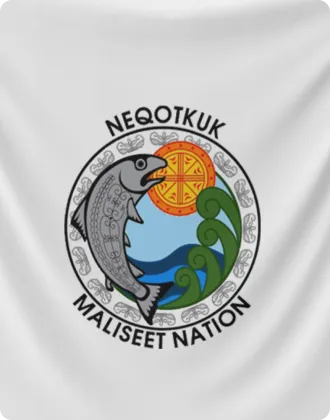
Gaming License in Philippines
The Philippines is rapidly growing in the field of gambling and is a favorable jurisdiction to start and scale a gambling business. The government that created Pagcor (Entertainment and Gaming Corporation) reaffirms its commitment to maintaining a favorable and reliable business environment. Gofaizen & Sherle will provide professional support in obtaining a Philippines Gambling License.
If you want to gain open access to the Asian gambling market and do business in a stable and reliable jurisdiction, you should consider obtaining a Gaming License in Philippines. The Pagcor regulator takes the issuance of the license and supervision of licensees seriously, which confirms the reliability of the regulatory framework and enhances the reputation of the jurisdiction among the client base.
The Philippine government is interested in developing an economic center in the region to attract investment. Continuous infrastructure improvement, motivation to develop a highly skilled workforce, a growing economy, and a flexible and loyal tax system – create a favorable environment for Gaming License holders in the Philippines.
With a license, it is possible to officially organize and conduct gambling, including casino operations, operating electronic gaming machines, conducting bingo games, and accepting bets on sporting events. To obtain a license, several standard requirements must be met, similar to other jurisdictions: incorporation of a company, demonstration of financial stability, passing a background check, and implementation of AML/KYC policies.

Advantages of a Philippines Gambling License
Legal operations
A gambling license in Philippines allows business to be conducted by Philippine law, while PAGCOR provides a strong regulatory framework for the fair and transparent operation of gambling activities.
Strategic Development
The Philippines is a fast-growing gambling market in Southeast Asia, providing convenient access to the vast Asian market and significant opportunities for business expansion.
Infrastructure for business
The country boasts a highly skilled workforce with excellent English language skills and affordable labor prices. Government efforts to improve internet infrastructure are making online businesses more viable and manageable.
Increased confidence
Having an official license increases the trust of customers and business partners, while the active support of the Philippine government promotes the development of the gambling industry.
Loyal taxation
Philippines licensees pay only a 5% franchise tax on gross gaming revenues, which exempts them from income tax, VAT, and other standard taxes.
Business Expansion Opportunities
With a Gaming License in Philippines, you can not only expand your range of games and services but also leverage the Philippines’ strategic position to attract new customers and expand your international presence.
Protection from legal risks
The license also minimizes the legal risks associated with running a gambling business, including possible fines and lawsuits for violating the law.
Request more information about Philippines Gaming License
Requirements for Obtaining a Philippines Gambling License
Before starting the process of obtaining a gambling license in the Philippines, applicants need to meet certain criteria set by the Philippine Amortization Gaming and Amusement Corporation (PAGCOR). It is important to meet the standards to maintain the integrity and reputation of the industry. Basic requirements include:
- The company must be registered as a legal entity in the jurisdiction.
- Prove financial stability by having authorized capital.
- Prove impeccable reputation and competence of all key persons.
- Develop and monitor compliance with the AML rule.
In addition, approval from PAGCOR is required before implementing any marketing promotions. This includes:
- Loyalty or membership programs to earn or redeem points or bonuses at the casino.
- Contests, sweepstakes, raffles, drawings, or tournaments where prizes can be won or used at the casino.
- Any promotions, programs, or incentives designed to attract visitors or players to the casino.
Types of Philippines Gambling Licenses
Several types of Gaming licenses in the Philippines relate to different company activities.
The most popular licensing option is the offshore gaming license for POGOs. These are offshore online gaming companies that provide their services outside the jurisdiction. The main regulator of such companies is PAGCOR, which controls transparency and compliance with the rules by the licensees.
Philippines Gambling License categories include the following:
Gambling License Categories:
- Online Casino License: Designed for operators running online casinos. This includes real-time games such as table games and slot machines available over the internet.
- Sports Betting License: This license is required for those who organize betting on sporting events. It allows you to accept bets on various sports and predict their outcomes.
- Regulated Sports Betting License: A special type of sports betting license that involves regulating according to certain jurisdictions and providing live audio and video broadcasts of sporting events.
- Bingo License: This license authorizes the organization and conduct of bingo, one of the most popular forms of gambling.
How to Start a Gambling Company in Philippines
The Philippine government has greatly simplified the company registration process, especially for foreign businesses. However, despite several changes, the process is still quite laborious and requires fulfillment of several requirements and careful preparation of documentation. If you want to simplify the process and get a quick and efficient solution to this task, we recommend you contact the experts of Gofaizen & Sherle. First of all, you need to choose a company structure, the ideal option for a Filipino company is a corporation, which is similar to a limited liability company. However, note that full foreign ownership of this corporation is prohibited. If you have met all the requirements and gathered the necessary package of documents, the incorporation process will take about 8 days.
Company capital requirements:
- 0% of capital in foreign ownership – $100
- Up to 40% of capital in foreign ownership – 100$
- From 40.01% of capital in foreign ownership – 200.000$
If your company is 40.01% or more foreign-owned, there are some actions you can take to reduce the financial burden:
- When hiring 50 local employees or introducing advanced technologies into the business structure, the required capital is reduced to $100,000
- When exporting from 70% of the services, the capital requirement is reduced to 100$
To register a company, you are required to comply with the following rules
- At least 2 founders must be residents
- Appoint 4 key persons: company president (no residency requirement), secretary-administrator (resident), treasury officer (resident), and AML officer (resident).
- Opening a bank account with company capital.
- KYC (customer verification) for all players must be conducted privately by the operator.
- All operators are required to have and enforce anti-money laundering (AML), customer verification (KYC), and responsible gaming policies.
To open a company, you need to follow the following steps:
Collecting documents
Step 1
Before applying, you need to collect a package of the following certified documents:
- Company Memorandum
- Articles of Association
- Shareholder IDs
- Application form
- Verification receipt
- Authorization from the municipality
- Certificate from bank
- Application form for foreign investment (for subsidiaries)
- Application form from the treasury
- Written agreement from the two incorporators.
- List of all shareholders and the amounts of their contributions
- Receipt for payment of state duty
- Employee details
Filing an application
Step 2
After collecting the documents, you need to choose a company name and file an application with the SEC (Philippine Securities Commission).
Paying the fees
Step 3
Get a request from the SEC for registration fees and pay them.
At this point, you can be guided to the following cost:
- Check the conformity of the company name – 1.7 €
- Register articles of association – 17 €
- Register shares – 2.5 €
- Transfer shares – 5.3 €
- Filing 0.2% of the declared capital, but not less than 17 €
In addition, you need to consider the annual fee – 450 euros, payable by June 30 each year.
Authorization from Barangay
Step 4
Wait for authorization from Barangay (responsible for the administration of your region). To obtain it, you need to provide a certificate from the SEC, a copy of your passport, and proof of office rent.
Authorization from City Hall
Step 5
Once you have obtained the authorization from Barangay, you must submit it to the City Hall along with the certificate from SEC, copy of passports, and proof of office lease.
Obtain an identification code
Step 6
You need to register with the BIR (Bureau of Internal Revenue) to get a TIN for your business. After that, you need to register your books of accounts and invoices.
Employer Registration
Step 7
Register as an employer with the SSS (Social Security System) as well as the Philippine Health Insurance Corporation.
Process of applying for a gambling license in Philippines
Obtaining an online gaming license Philippines consists of 4 steps:
- You need to gather a set of incorporation documents, and financial information and submit them along with the license application to PAGCOR.
- PAGCOR will then conduct a compliance review of your company, investors, and key personnel.
- To ensure all requirements are met, the regulator has the right to conduct an in-office review or separate financial audits.
- If all regulations have been met, you will receive a Gaming License in the Philippines to operate legally in the jurisdiction within 13-18 weeks.
The cost of applying for a license for different types of offshore gambling:
- Internet casino: $50,000
- Organizing sports betting: $40,000
- Conducting regulated sports betting: $40,000
Regular expenses for the PAGCOR master license:
- Monthly fee: 5,000 euros
- Annual renewal fee (from 2nd year): 35,000 euros

Find more information about the Philippines Gambling License
Overview of Gambling license in Philippines
| License processing time | 1 month |
| License application fee | Up to 40 000 USD |
| Minimum capital requirement | 450 000 USD |
| Tax on profit | 25% |
| Resident employee | Yes |
| Office requirement | Yes |
Gambling Legislation in Philippines
PAGCOR is the main Philippine regulator responsible for the supervision of Entertainment City (casinos, online casinos within and outside the jurisdiction).
PAGCOR, according to its Charter, fulfills a tripartite mandate:
- The organization is responsible for the regulation, management, permitting, and licensing of gambling, including card games and numerical games, with a special focus on casinos in the Philippines.
- Involved in revenue collection to support social, civic, and national development programs initiated by the Philippine government.
- Promotes the development of the country’s tourism industry.
In June 2007, the Philippine Congress passed Republic Act No. 9487, which extended the term of PAGCOR Corporation for 25 years with the possibility of further extension for the same terms.
Key objectives include enabling the growth of the gaming and entertainment industry in the Philippines, actively participating in government programs for national development as a trusted and considerate partner, and developing and maintaining a regulatory framework to ensure an integrated Philippine gaming industry.
The main laws regulating the gambling sector:
- Interactive Gambling Act 2003: This law regulates virtual or interactive games of chance on the Internet. It sets rules and standards for the operation of online casinos, including requirements for licensing, security, and fairness of games.
- Casino Rules and Regulations: This set of regulations describes detailed requirements and guidelines for the management and operation of a casino. It includes provisions relating to gaming operations, equipment standards, security, and control of casino operations.
- Republic Act No 11590: This Act regulates the taxation of income derived from offshore gaming operations in the Philippines. It establishes tax rates and provides tax payment procedures for offshore gaming operators.
- Anti-Money Laundering Act, AMLA: This law aims to prevent the use of gambling for money laundering. It requires PAGCOR licensees to implement measures to detect and prevent any attempt to launder money through their gaming operations. Includes requirements for tracking transactions and reporting suspicious activity.
In response to the government’s aggressive fight against money laundering (ML) and terrorist financing (TF), the Philippine Gaming and Amusement Corporation (PAGCOR) established the Specialized Anti-Money Laundering and Legal Enforcement Division (PASED). The mission of this division is to develop and maintain an effective system to counter money laundering and terrorist financing in the casino industry. PASED’s activities include several control activities, including preventive actions, application of appropriate sanctions, and implementation of corrective measures.
Currently, PASED’s key areas of work in protecting casino integrity from ML/TF consist of three main elements:
- Policy Development and Implementation: Includes research and analytical work to shape policies and strategies in collaboration with the AML Board, international and local partners, and casino operators.
- Casino AML/CFT Risk Assessment: Assist casino operators in conducting their own AML/CFT risk assessment.
- On-site inspections and audits: Regular inspections at casinos to ensure that operators’ actions comply with AML/CFT requirements, as well as analysis of external reports, including ML/TF Prevention Programs and other documents submitted by casino operators.
Taxation of Gambling Companies in Philippines
Gambling companies holding a gambling license in Philippines are subject to the Taxation of Offshore Gambling Operations Act. According to this law, taxation applies to different sources of income of the company and implies the following rates:
- 5% franchise tax on income from gambling operations. If the franchise tax is applied, the company is exempt from income taxes and VAT.
Other taxes for an offshore gambling operator:
- 25% income tax on income earned outside the jurisdiction.
- 25% income tax for foreign companies operating within the jurisdiction.
In addition, foreign employees working for Philippine offshore gaming operators are required to pay an income tax of approximately €207 or 25% of their gross income, whichever is greater.
Please note: All foreign employees of Philippine operators and their service providers are required to have a TIN. If a foreigner is hired without such a number, the operator faces a fine of about 331 euros for each such employee.

FAQ about Philippines Gaming License
How do I get a gambling license in the Philippines?
To obtain a Philippines gambling license, it is necessary to submit incorporation and financial documents to PAGCOR, undergo a compliance review of the company and key personnel, pass a regulatory review, and upon successful completion of the requirements, obtain a license to operate in the jurisdiction.
How long does it take to get a gambling license in the Philippines?
It takes less than 1 month to obtain a gambling license in the Philippines.
How much does a gaming license cost in the Philippines?
The cost of a gaming license in the Philippines ranges from $26,000 to $40,000 in government application fees.
Are there any challenges associated with securing a Philippines gambling license?
Obtaining a gambling license from PAGCOR can be challenging as the regulator closely monitors its licensees. Applicants need to meet strict criteria and comply with AML regulations. In addition, an incomplete application package can cause delays in processing the application.
Can non-residents own Philippines gambling companies?
Yes, PAGCOR allows foreigners to own gambling companies in the Philippines, as long as they comply with local laws. However, most founders must be residents.
Do Philippines gambling companies undergo auditing processes?
Yes. PAGCOR conducts regular inspections, including financial audits.
What is the minimum required number of members/directors for a Philippines company?
To incorporate a company, certain conditions must be met: at least 2 of the founders must be residents of the country. In addition, four key employees must be appointed: a company president, an administrative secretary, a treasury officer, and an anti-money laundering (AML) officer.
How much is the annual licensing fee for a Philippines gambling company?
The annual license fee for Philippines gambling companies depends on the type of gambling activity and the size of the operation and ranges from $15,000 to $4,000.
Explore other Gaming Licenses
Connect with our experts
Our experts will tell you how to do it as quickly and easily as possible.
By clicking the button, I confirm that I have read the privacy policy and consent to the collection and processing of my personal data in accordance with the GDPR rules.
to our news & insights








